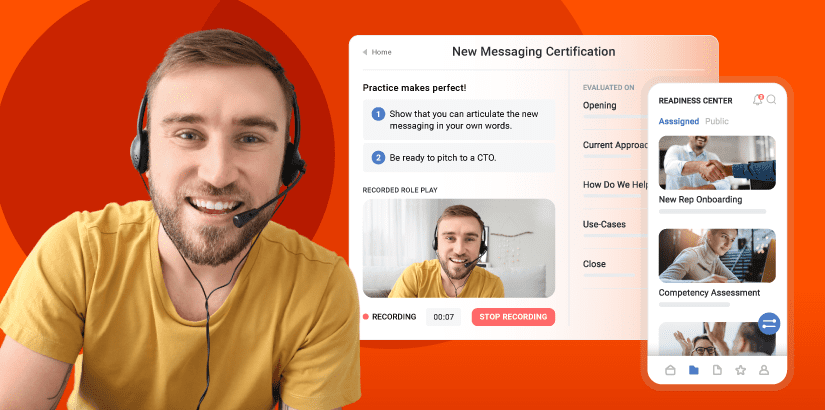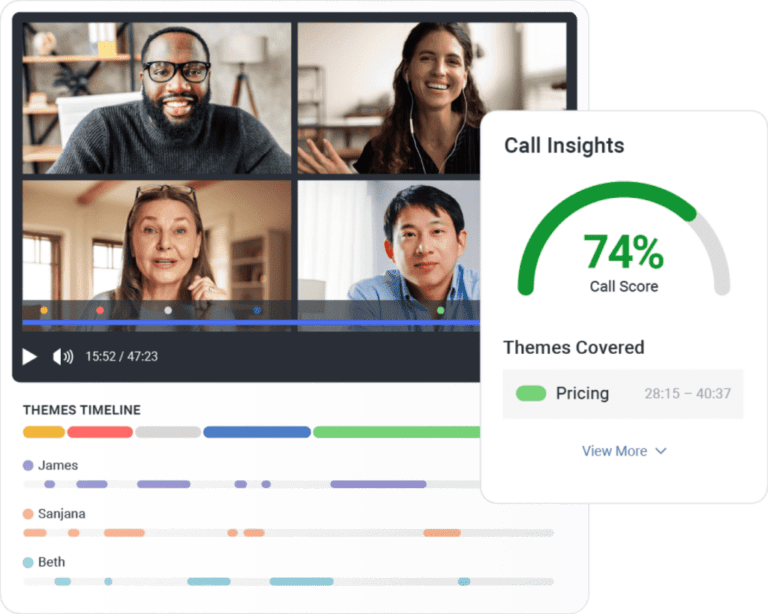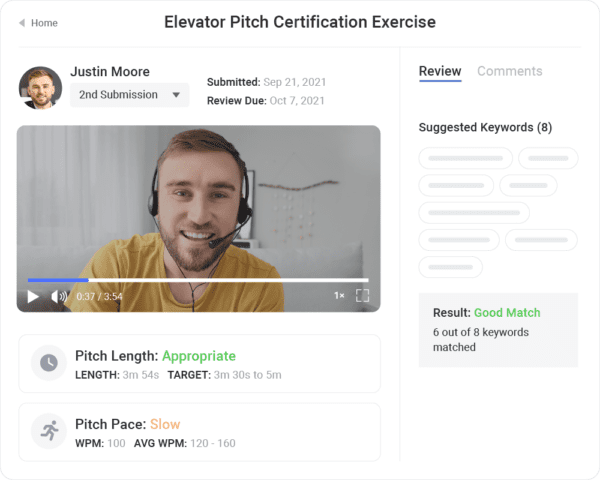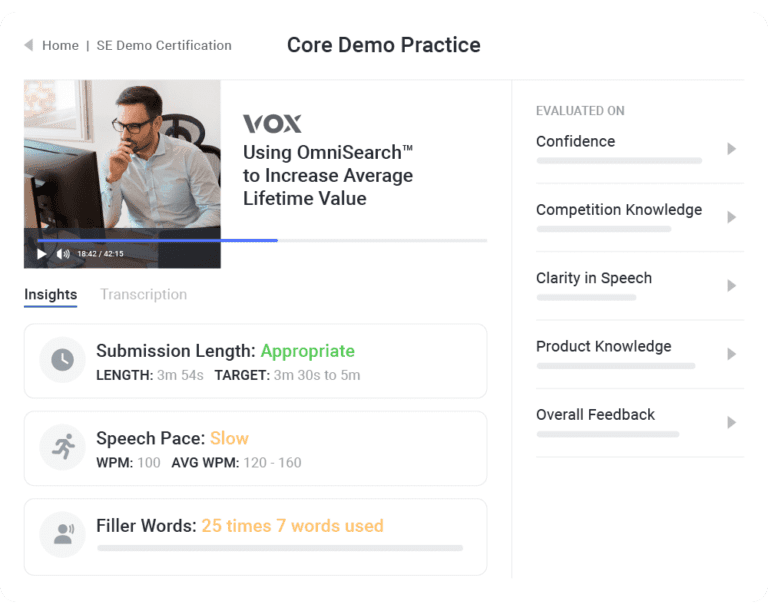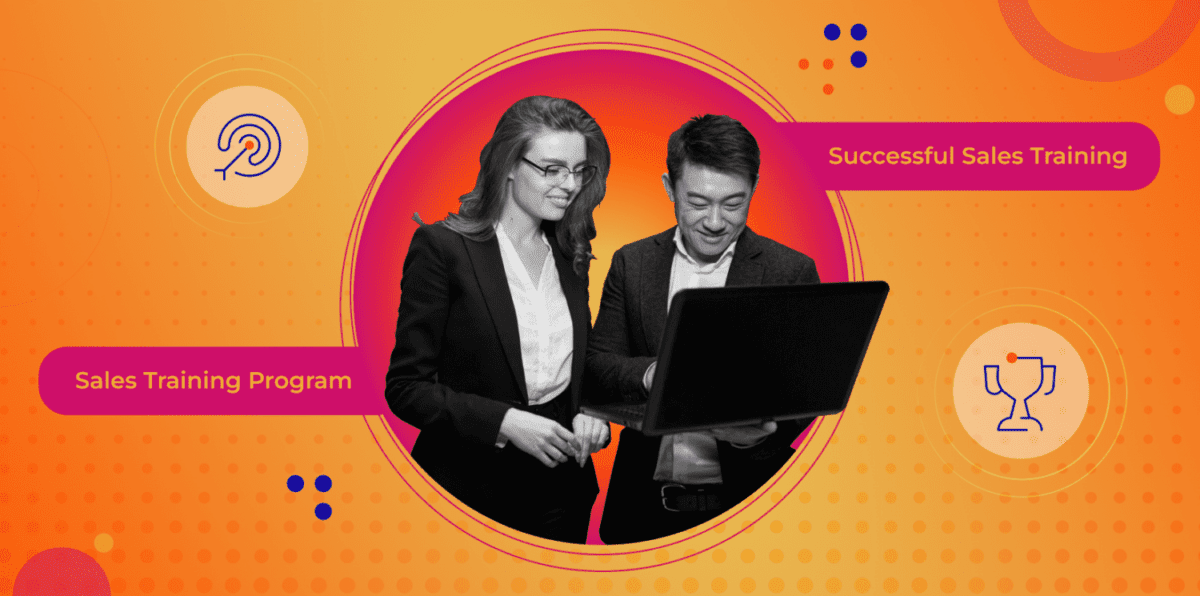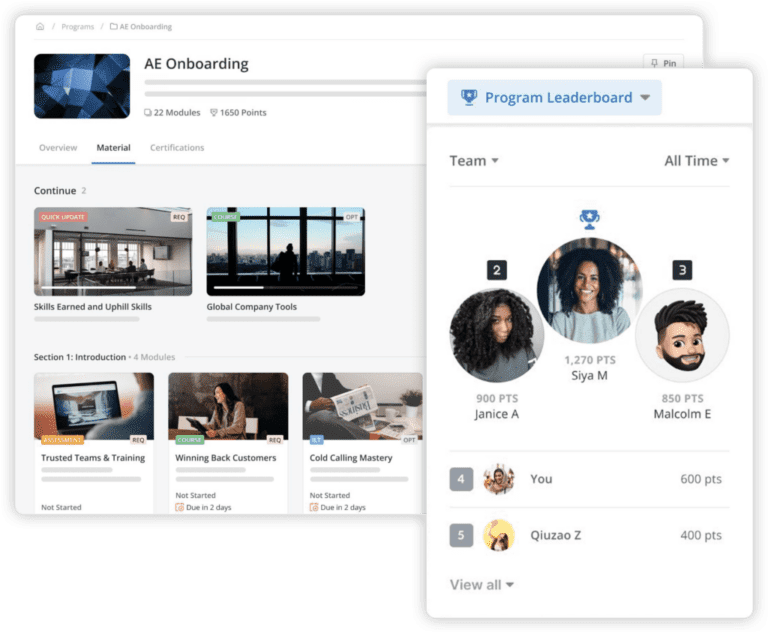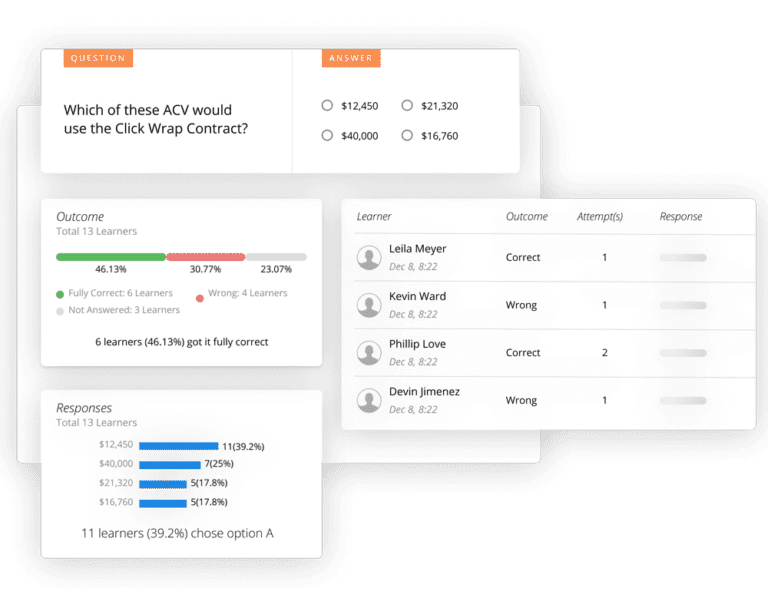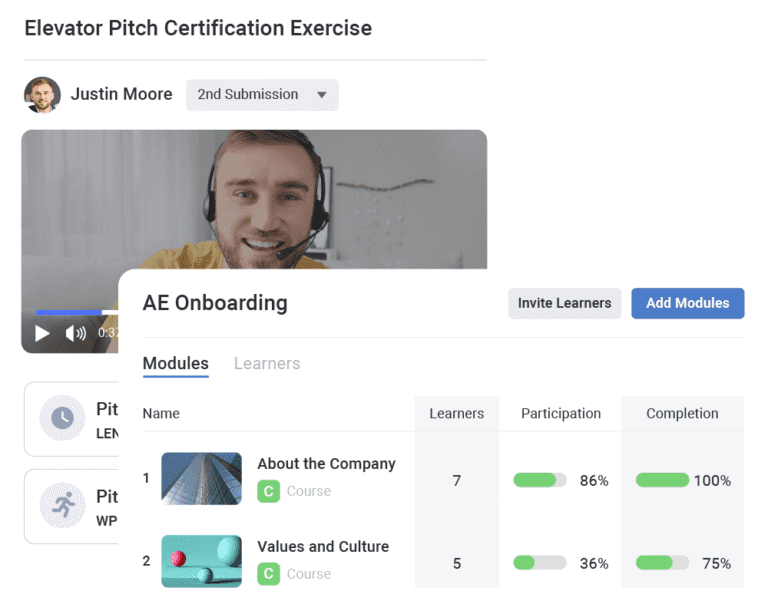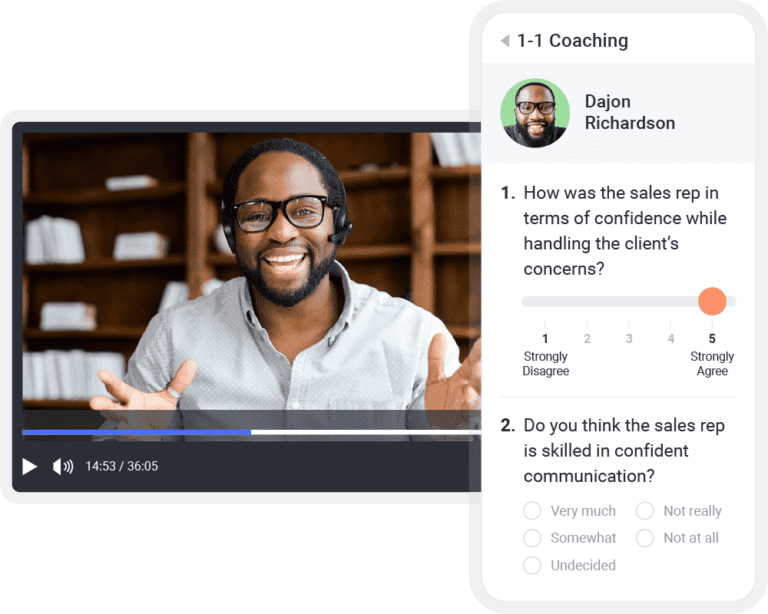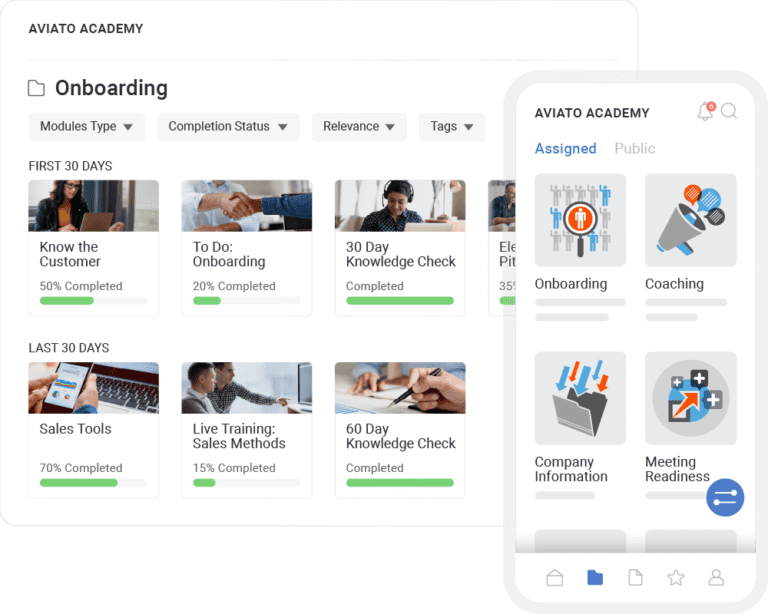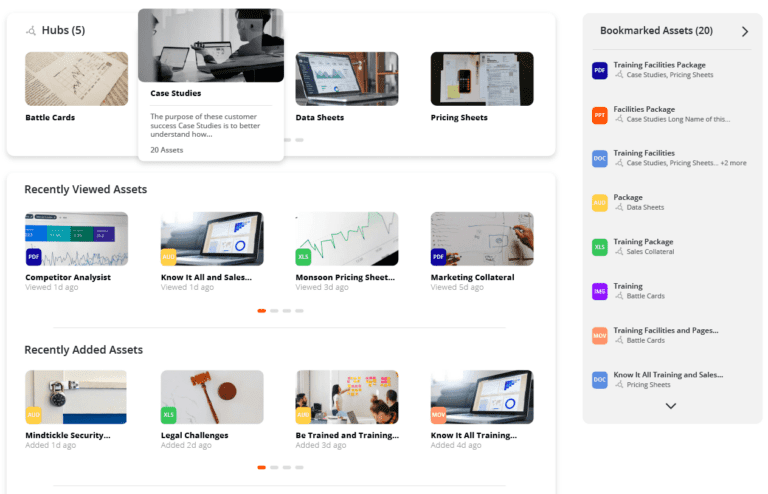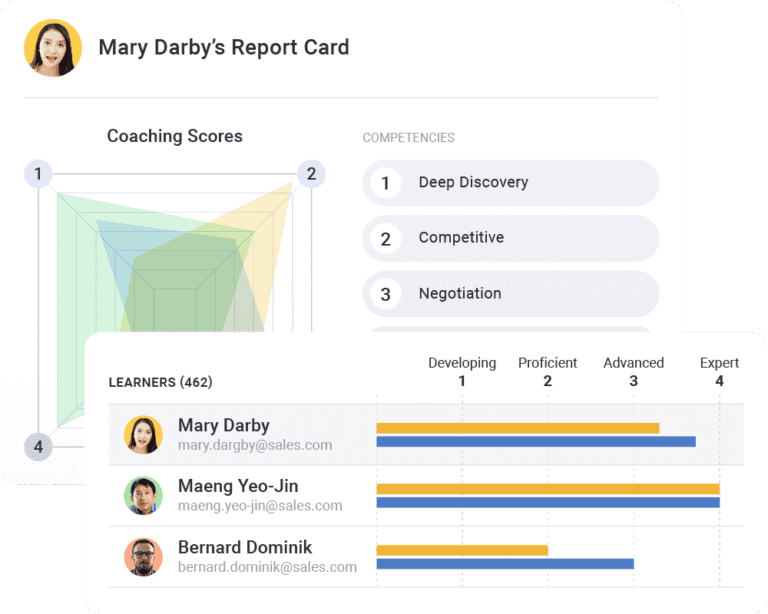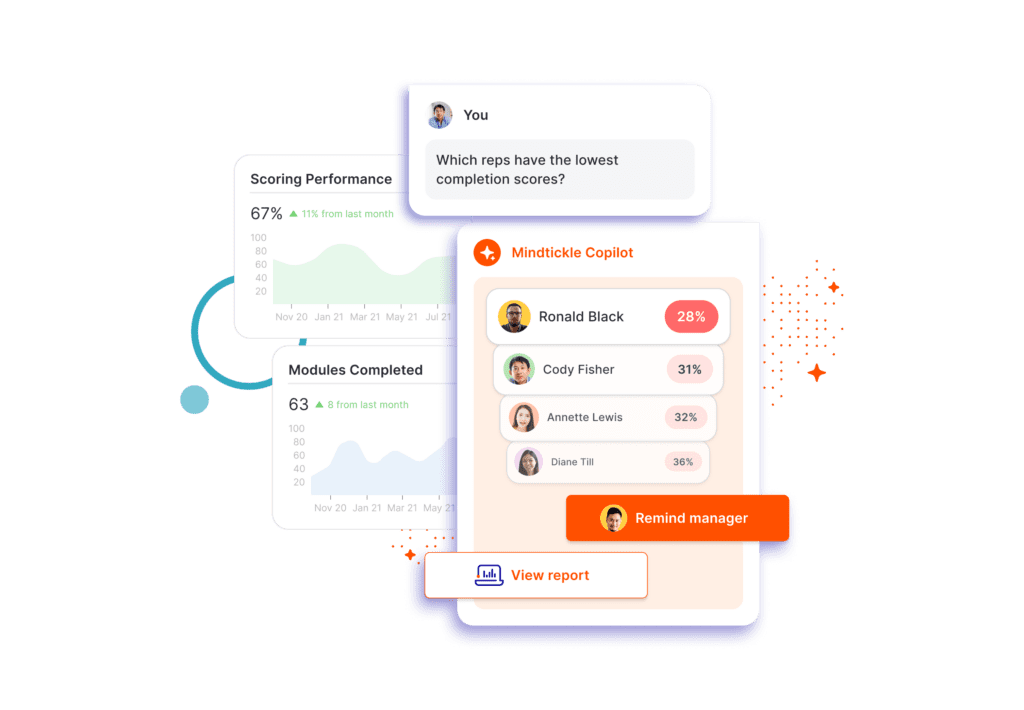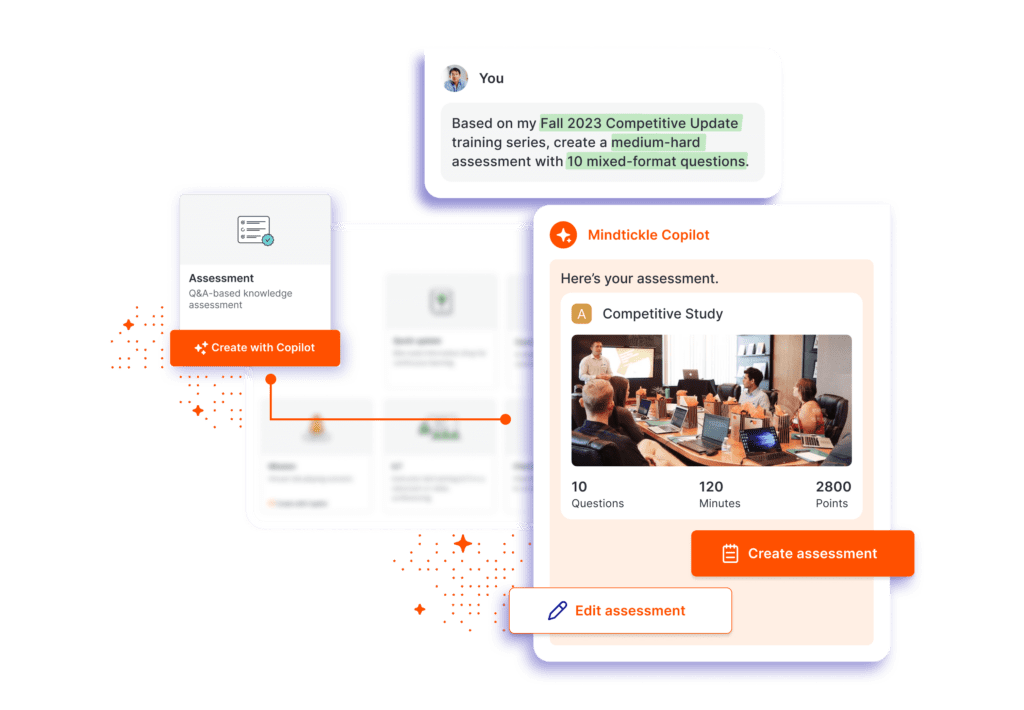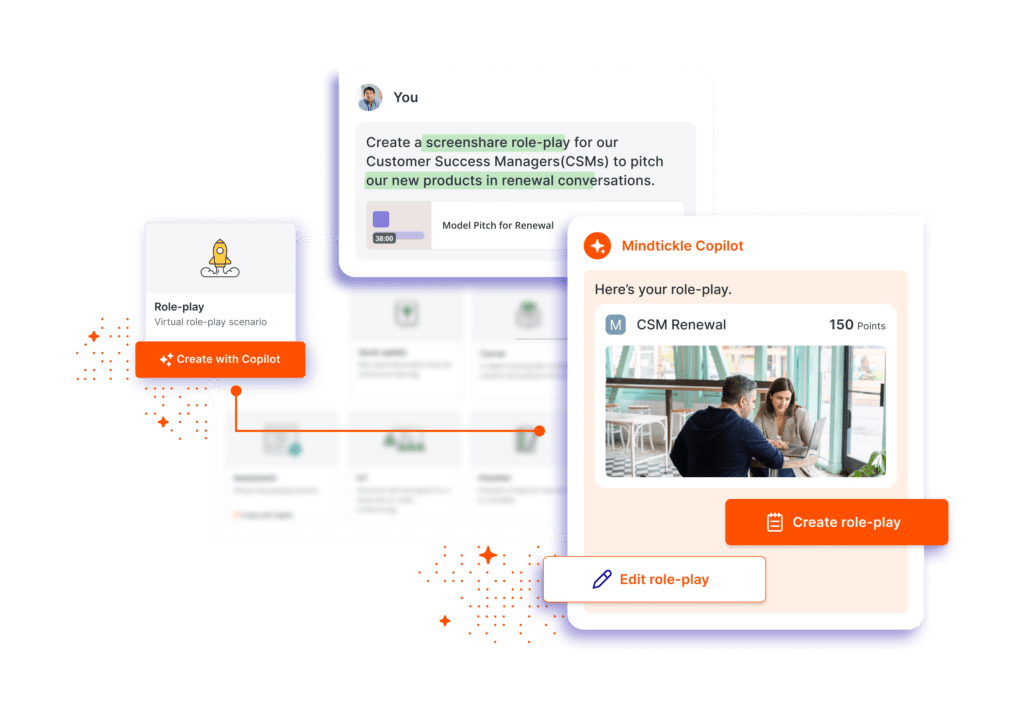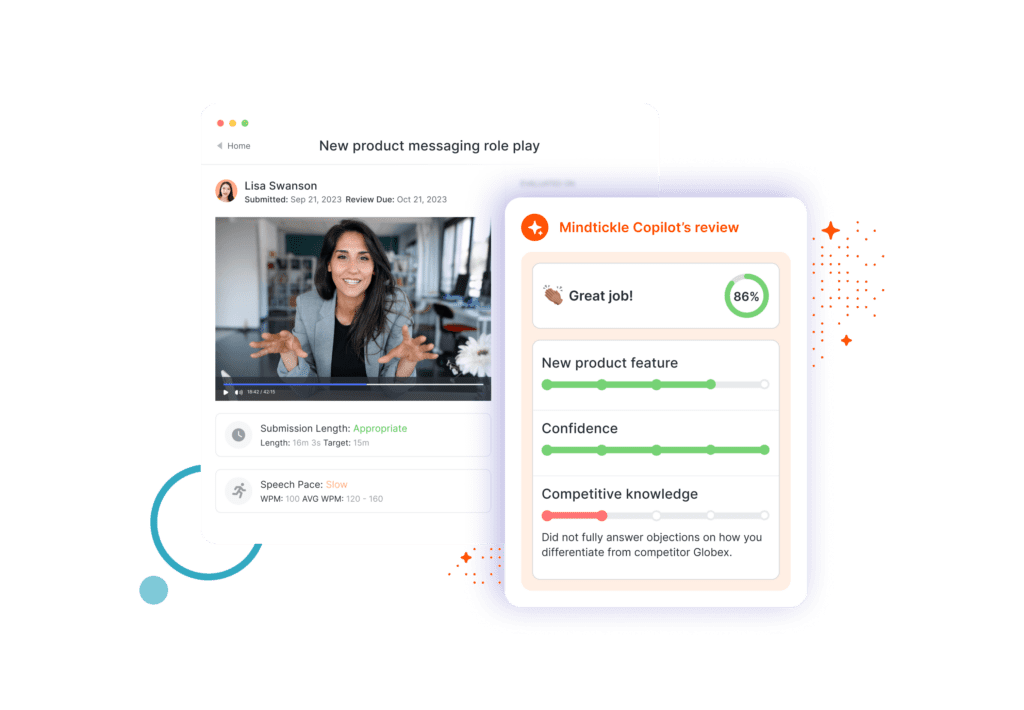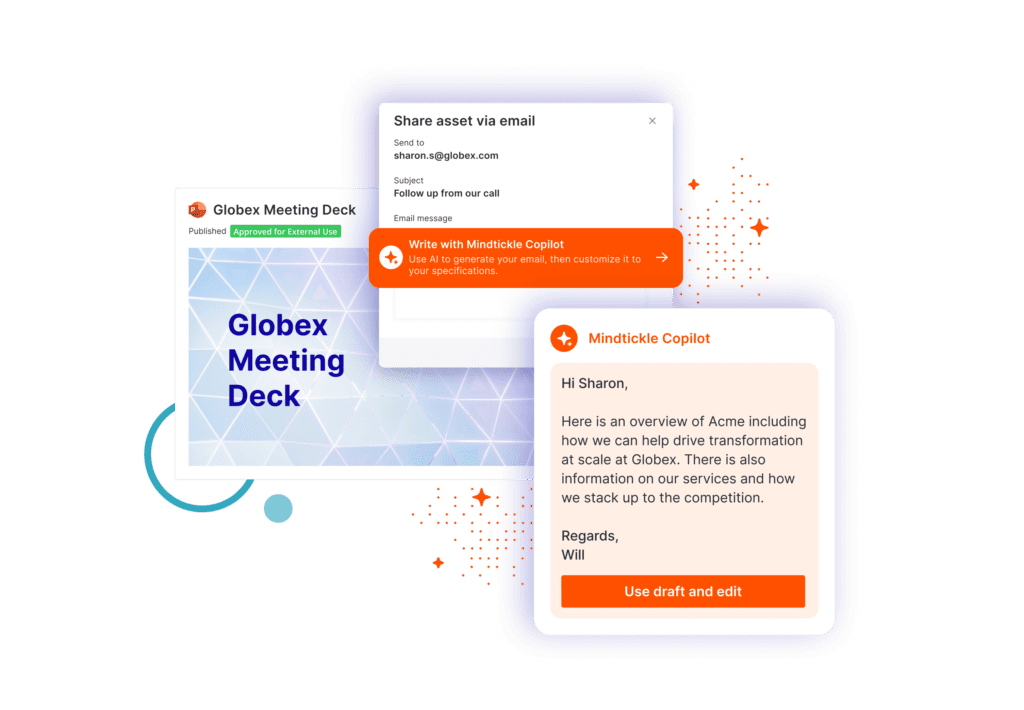8 Must-Try Sales Role-Plays That Will Prepare Your Team for Every Selling Situation
![]() Helen Waite
on
October 31, 2023
Helen Waite
on
October 31, 2023
Whether you’re taking up a new hobby or developing on-the-job skills in a sales role, it’s true what they say: Practice makes perfect. There’s only so much that a seller can digest through sales onboarding and training content — and in order for a rep to truly hone their skills, they must practice through sales role-plays.
Role-play sales training exercises have long been recognized as a powerful training tool for good reason — because they work. They’re a proven way to boost a seller’s confidence in new material, familiarize themselves with messaging, and learn how to handle objections in a risk-free environment.
The value of sales role-plays
Sales role-play scenarios are an especially valuable coaching technique right now. As many sales forces have shifted to remote work environments, it’s imperative that sales training role-plays become a part of every seller’s routine. Because sales is such a people-oriented profession, many of the skills learned on the job are developed through shadowing, coaching and mentorship.
When reps are on their own, and less likely to develop these skills organically as they’re not working alongside their peers in an office, it’s important to foster this skill set through designated training sessions. After all, role-playing helps sellers practice and prepare for real-world buyer interactions so they know how to handle every selling situation thrown their way.
That being said, role-play is traditionally considered a team sport. So you may be wondering how it can be approached effectively while everyone is working remotely. The key is to use a “smart” role-play tool that comes with AI. A tool like this allows you to use AI to analyze a transcript of your reps’ video recordings or presentation voiceovers, giving you insights (with the help of keyword analysis) into the presenter’s articulation, product knowledge, enthusiasm, confidence, and comprehensiveness of response.
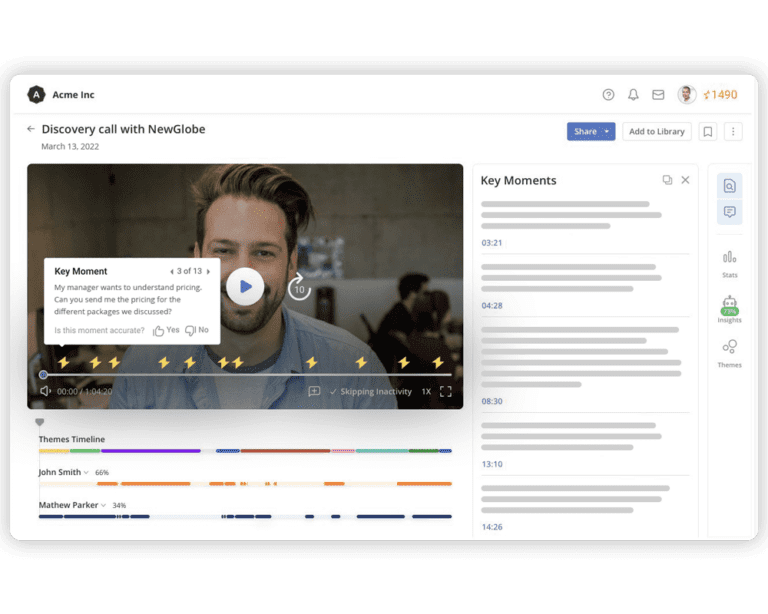

Compared to a traditional role-play conducted in person, virtual role-plays give reps the opportunity to take multiple passes at a scenario at their own pace, while also equipping them with concrete feedback that they can put into practice immediately.
Top 8 sales role-play scenarios
If you’re a leader or manager looking for sales role-play ideas that will get your team thinking on their feet and mastering new scenarios, we’ve highlighted our eight tried-and-true favorites.
As you think about the different types of role-play scenarios to practice with your team, it’s a good idea to first identify the key areas where reps typically struggle or face challenges, and equip them with the tools they need to prepare for those scenarios in the field.
Below are the top role-play scenarios — along with some suggestions for how you can effectively execute them in a remote environment.
This is an essential exercise for any sales rep, but particularly BDRs who need support in identifying the buyers’ problems. With a smart role-play tool, you’ll be able to provide contextual, in-video comments on their role-play, so reps know exactly where they can refine their talk track or ask stronger probing questions
A good elevator pitch is everything to a sales rep. Reps can practice their elevator pitches on a call or in the form of a recorded practice, which can then be reviewed and evaluated by their manager and their peers.
This role-play sales training is especially valuable for those transitioning from field sales to inside sales. This type of role-play scenario allows reps to practice sales conversations remotely with other team members or their managers. This might include handling new sales software or adapting their talk track for a virtual meeting — both of which can be evaluated with the right technology in place.
Your reps’ messaging needs to be precise and their product knowledge evident during demos, so it’s always a good idea for reps to role-play a product demo with a more experienced colleague or sales manager. These can be analyzed for keywords, filler words and to gauge reps’ confidence in the material, especially when unexpected questions come their way.
Objection handling role-plays gives reps the chance to practice answering tough questions and combat objections from buyers. This can be done virtually with top-performing sales colleagues and helps give less experienced sellers the chance to hear firsthand the types of objections that a typical prospect would have, then use their training to try to answer their questions or mitigate their concerns.
Great sales reps are skilled negotiators. Develop this skill in your salesforce by creating role-plays simulating buyers asking for a lower price based on competitor pricing or budget. Using AI can be extremely helpful when evaluating negotiation role-plays because it identifies the number of filler words used, tone and confidence, which are typically more difficult to effectively provide feedback on without concrete data.
When competitors come up in sales conversations, you want your reps prepared and ready to handle those situations with ease. To do this, sellers can role-play conversations that mimic situations when a buyer mentions a competitor or asks about comparisons. You can also encourage reps to set competitive traps in their product positioning and scan their role-play transcripts to ensure they’re hitting the mark each time.
Buyers love seeing examples of how other customers use and benefit from your product. Customer storytelling role-plays allow reps to practice sharing their best customer use cases and stories. Using a smart role-play tool, you can leave comments at specific points in each recording where you think messaging could be refined or strengthened.
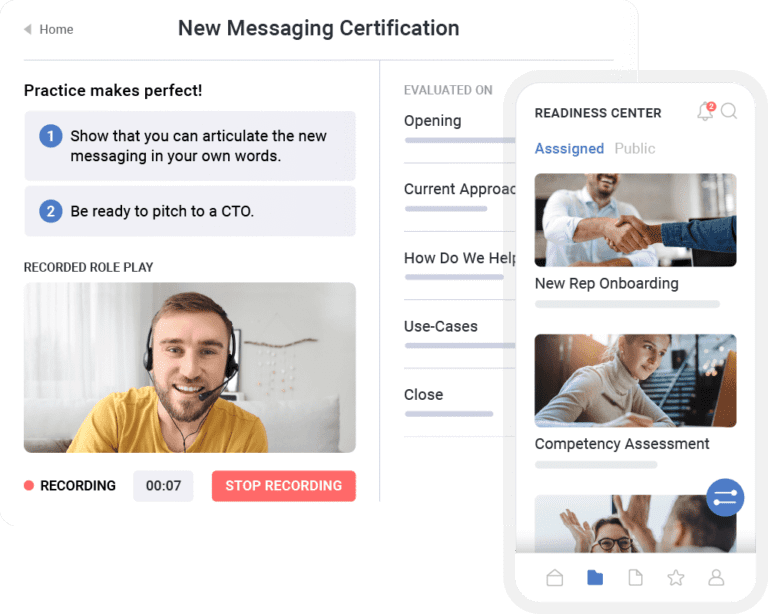

Role-plays coupled with expert coaching: a winning combination
When it comes to effective on-the-job learning, we know traditional training materials aren’t enough, but neither is sales coaching alone — no matter how good it is. To actually drive changes in seller behavior, reps must also have the opportunity to practice their skills in live situations.
By offering reps the opportunity to conduct virtual sales role-plays in a remote work environment, while also being able to provide accurate and timely feedback through some of the AI-powered tools on the market, you’ll be able to set your reps up for success whether they’re near or far.
Better role-plays = More productive sellers
Ready to see how Mindtickle can make your role-plays more effective?
Request a DemoThis post was originally published in June 2021 and updated in October 2023.

